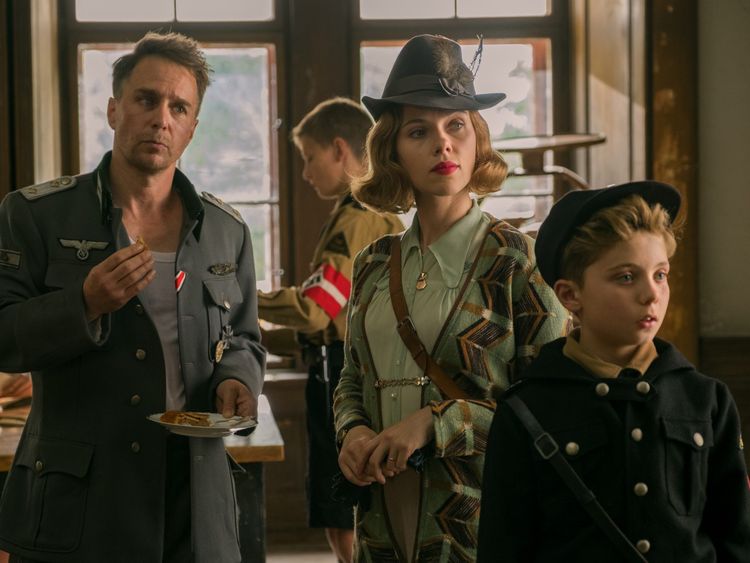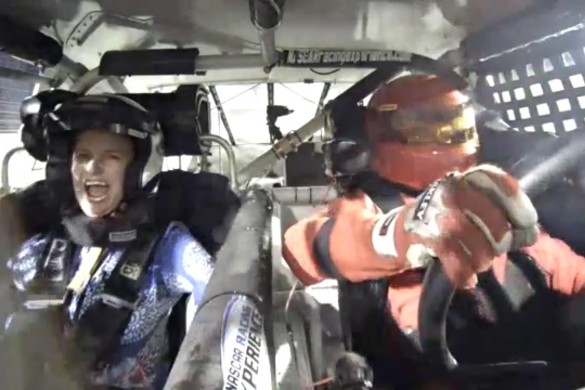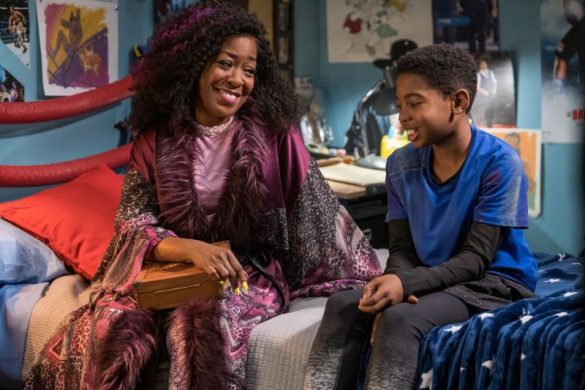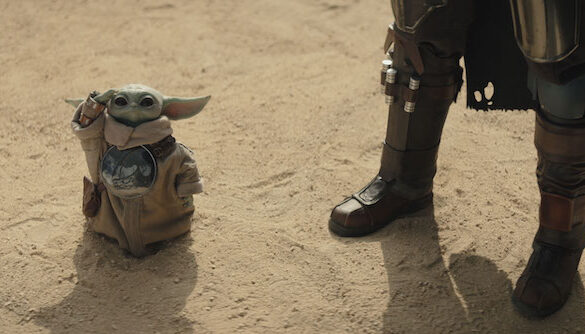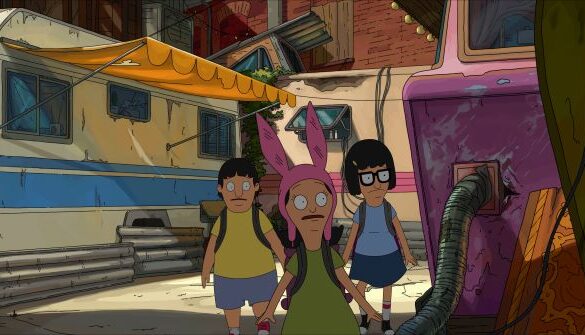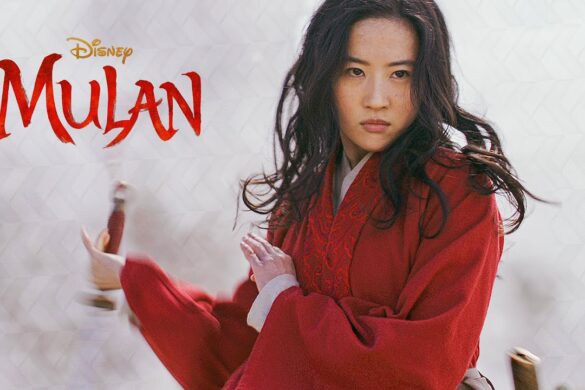In the past few years, the world has witnessed the ferocity of hate through the words of tyrants and demagogues, and we have seen the dangerous repercussions of what that kind rhetoric can do towards the marginalized and minorities. But Taikia Watiti’s Jojo Rabbit is a stark reminder that despite the dark and grim atmosphere created by those thoughts of hate and ignorance, some choose to celebrate life as a gift, understand the power of love, and remember what the simple act of acceptance can do for another person.
Jojo Rabbit is wisely being campaigned as the anti-hate satire that centers on Jojo (Roman Griffin Davis), an impressionable 10-year-old boy who is trying to move up the ranks in the Third Reich during the losing end of the Nazi war. Though he likes to think of himself as a soldier, he isn’t exactly the spitting image of one. In an attempt to prepare himself for the war, he attends a boot camp that is led by a wayward Captain Klenzendorf (Sam Rockwell), who is disappointed that he can’t be in the war because of an unfortunate yet very preventable accident, and his two flunkies Finkel (Alfie Allen) and Fräulein Rahm (Rebel Wilson). He tells the new members of the troop that the boys will learn how to shoot guns and throw knives, while the girls will learn how to make the bed, tend to the wounded, and how to get pregnant.
They also learn about how Germans are the superior race and how to spot a Jew, although their descriptions of them and any distinguishing features couldn’t be more off base. Though Jojo is excited at the notion of being able to be a patriot for his country, he isn’t physically able to keep up with the members of his troop. Furthermore, he is too timid to do any actual killing and is constantly teased for being too weak. However, an imaginary friend taking the form of Adolf Hitler (Taika Waititi) gives Jojo advice that would help him gain some respect.
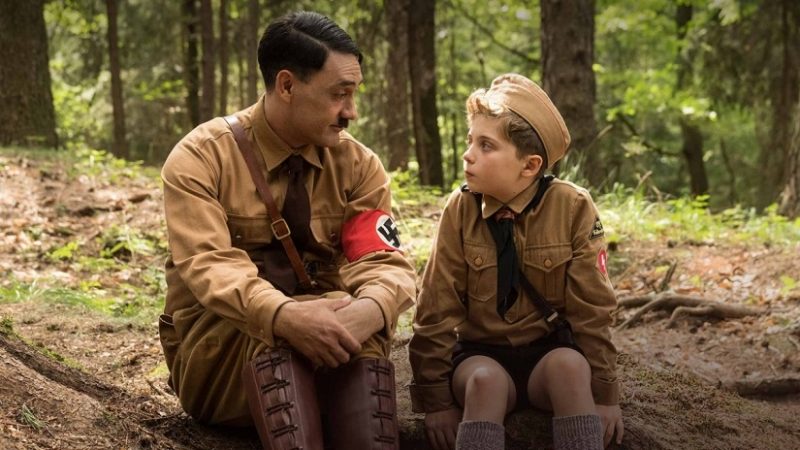
This does not work out well, as Jojo snatches a live grenade from a Klenzendorf and throws it against a tree, which then rebounds and lands before his feet. This results in his disfigurement and gives him a limp in his step. Soon, he gains the strength to walk on his own but refuses to go outside because he looks stupid. Fortunately, his cheerful mother, Rosie (Scarlett Johansson), is there to give him a very different perspective. She tells her son that he should enjoy the attention because it is not every day that someone gets to look stupid.
Despite his disposition, he learns that he can get another chance to serve Hitler when he discovers that his mother has been hiding a young Jewish girl named Elsa (Thomasin McKenzie) in the upstairs floor of their house. However, he finds out that if he does bring Elsa to the proper authorities, he and his mother would be killed for harboring a Jew. So they make a compromise that he will let her live upstairs if she tells him about everything she knows about the Jews.
As the war rages on, Jojo and Elsa start to forge a brother and sister relationship, Through Elsa, Jojo learns the truth about how Jews are simply trying to live and how everything he’s learned about them through the Nazi regime is a complete and utter lie. Jojo is astonished, but also hesitant to accept the truth. At times, Elsa seems to be amused by Jojo’s reactions. It’s a quiet kind of humor that instantly warms the heart as we get to see two people connect and a child’s ignorance slowly breaks down.
Of course, that is all turned around when his imaginary best friend Hitler constantly gives him the best and worst kind of advice imaginable, like telling him being called a rabbit isn’t so bad (best) or telling him that he should blame Winston Churchill for his current predicament. And true to Waititi’s humor, this imaginary Hitler appears at the craziest moments during Jojo’s life-changing events.
Luckily, that sort of humor never gets out of control and is more reminiscent of something that we would see in a Mel Brooks film. Waititi’s performance of the irrelevant historical figure is a hapless goof who pops up like some sort of puppet on a children’s learning show. He brings in that signature humor that is both wild and silly but never mean-spirited or nasty. It has slapstick but is done with purpose. Every moment is genuinely earned, and as such the laughs are harder. But it is the more tearful moments that will get you.
People are dying, which is a natural part of the war, and Waititi knows that a film like this could not shy away from that fact. The imagery of what happens when you deliberately go against the Nazi regime is striking. It is so striking that you want to cover your eyes. But just as Rosie turns Jojo’s head to make him look, so should we to learn about the seriousness of what happens to Jews or those in the resistance.
And The film’s heart is in the right place as it delivers on its promise to be an anti-hate satire. Throughout the film, we hear about how Jews have underneath their hair, have scales, and sleeps upside down in a cocoon of their own wings, while the Germans are the superior race who are much stronger than the Jews.
Of course, Jojo is shocked to learn that almost all of that is untrue. And yet, he finds himself in a position where he wants to learn more about them from Elsa and discovers they aren’t so bad. But at the same time, he wants to serve his country. It may not be a conundrum for those who are a little bit older and a little bit wiser, but for a child who still has no understanding of the surrounding world, he starts to learn about the dangers and the harm hateful propaganda can cause when it is inflicted on an innocent group of people.
Jojo is still a child who hasn’t chosen his own way of life but has been put on an enlightening after the grenade mishap. His protective mother shoulders much of the parental weight being that she is the only one left after her husband and Jojo’s father left to fight in the resistance, and the passing of her daughter, Jojo’s sister.
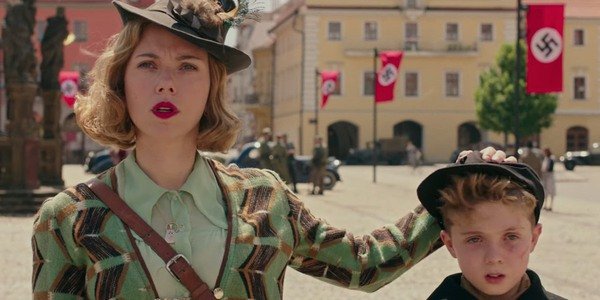
Johansson is terrific as Rosie, a fearless woman who willingly goes against everything that Germany represents and will protect her beloved Jojo at all costs. She is tough when she needs to be but also warm and kind when the time is right. And she can be quite playful too as she knows that Jojo is merely a child living in a time of war. The same can be said for McKenzie, who is also in a precarious position. All she has left is to hide in Jojo’s house. Even Rosie admits that if she had to choose between her and her son, it would have to be the latter. However, Rosie tells Elsa that she has lived many lives. But Elsa doesn’t share that same optimism as she retorts that she hasn’t lived at all.
But, Jojo Rabbit is more about the title character, who grows up before our eyes as he is caught in this precarious situation. Davis hits every emotional beat as though he has been doing this his entire life. We can see the joy in his eyes every time he is with his mother, the genuine curiosity when he is with Elsa, which then grows to a fondness as he learns that she isn’t as bad as the Nazi’s make her out to be. It’s through him that we see an ignorant young boy who longs to be a part of something, anything. Though he may not understand anything at first, he gradually starts to learn that love is more powerful than anything, that life is a gift that should be celebrated, and the importance of acceptance.
While some may find Taika Waititi’s odd brand of humor offputting, it is something that has constantly worked for him in many of his films. He finds that delicate balance of humor and heart with darkness and tragedy to deliver a message that hope and love can still exist even things look grim. And above all, Jojo Rabbit reminds us that we must experience the joy of the gift of life to the fullest.
In theaters October 18. Rated PG13.

